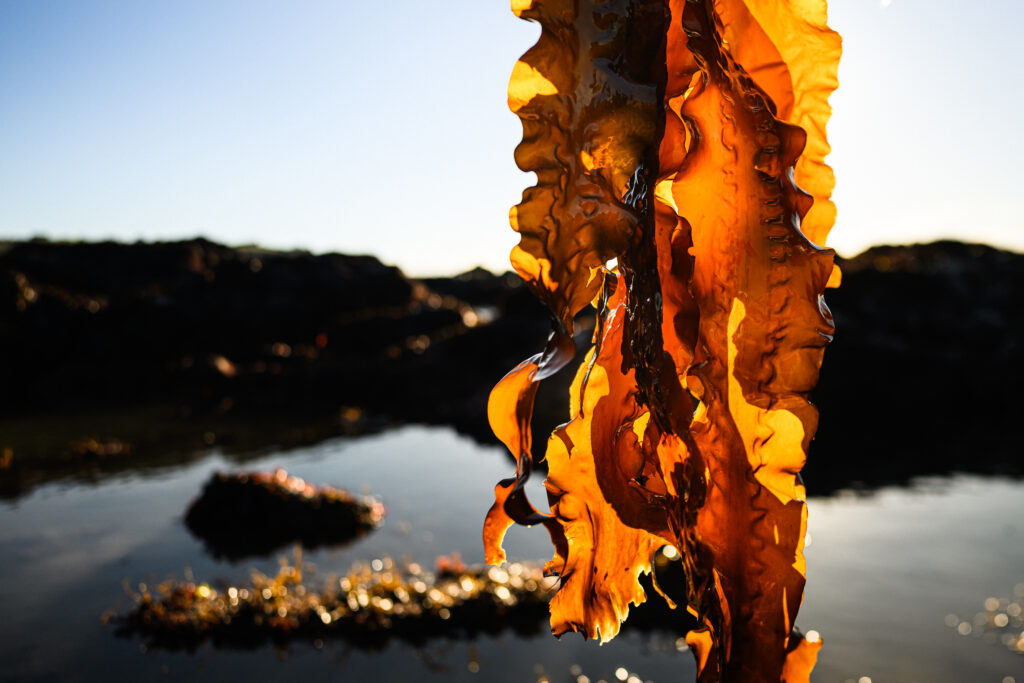
A new study has shed light on the evolution of underwater forests, which play a crucial role in capturing and storing carbon dioxide and the resilience of coastal ecosystems.
An international team of researchers, led by the CNRS and the CEA and funded by the program “France Génomique”, has analysed 60 new genomes of brown algae, an important algal group in marine ecosystems.
Published in Cell, this study has revealed genomic innovations that have enabled brown algae to adapt to coastal environments.
Brown algae (Phaeophyceae) play key roles in the structuring of marine ecosystems and the production of global biomass, as well as being used in a variety of industrial applications. Species such as Saccharina latissima are prized for their nutritional and bioactive properties and the giant kelp Macrocystis pyrifera is the largest known marine organism. However, the evolutionary history of this group is still poorly understood.
Marine Biological Association (MBA) Senior Research Fellow Dr Glen Wheeler and PhD Student Ellie Murphy contributed to this project by studying the evolution of signalling mechanisms in brown algal genomes. They identified the evolutionary gain and loss of mechanisms that allow brown algae to sense and respond to their environment.
Analysis of the genomic data identified a period of rapid genomic evolution during the emergence of brown algae around 450 million years ago. This phase was marked by the acquisition of new genes and the establishment of metabolic pathways essential for adaptation to coastal environments.
This research also examined how brown algae have evolved over time to adapt to various coastal environments. After their initial emergence, the group underwent a period of rapid diversification, favoured by major geological events such as the separation of the continents. This diversification was accompanied by net gene loss, a phenomenon that has also been observed in other multicellular lineages such as animals and land plants.
These discoveries open up major prospects for the conservation and sustainable exploitation of brown algae, with potential applications in the fight against climate change and the promotion of ecologically responsible mariculture practices.
The genomic data is accessible via the Phaeoexplorer website, a valuable tool for future study of these organisms.
Read the full paper: Evolutionary genomics of the emergence of brown algae as key components of coastal ecosystems. Cell Volume 187, Issue 24, 27 November 2024, Pages 6943-6965.e39